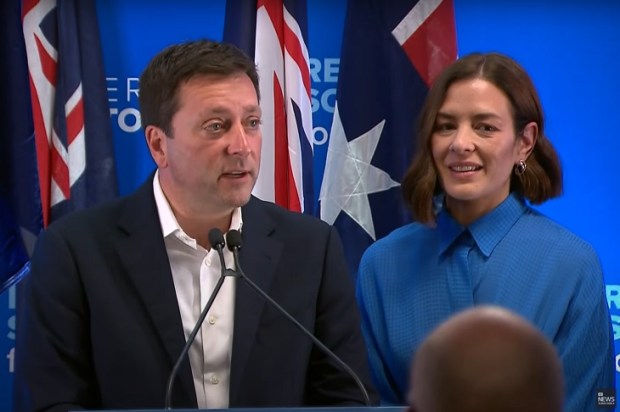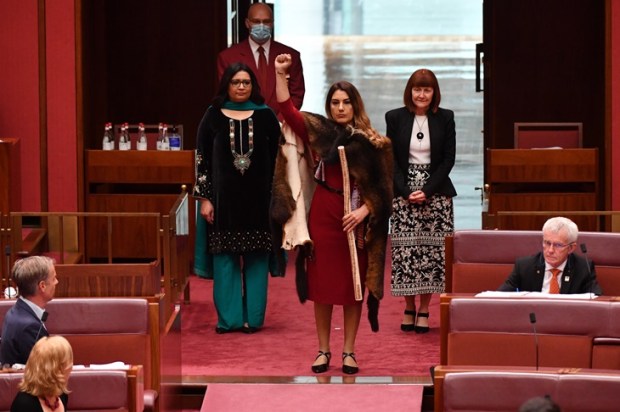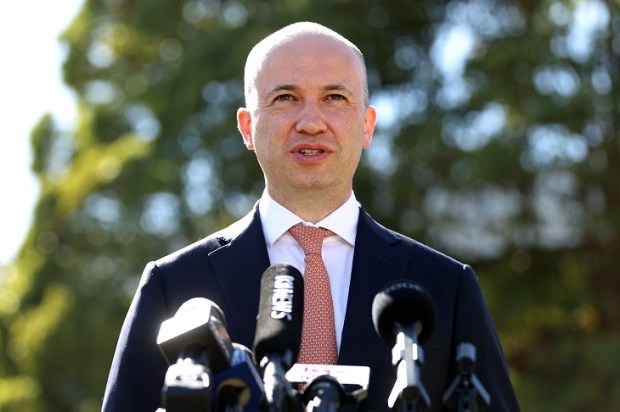It seems that some in the Victorian division of the Liberal party want to lose elections more than win them.
The decision of the party’s state Administrative Committee to postpone Senate pre-selections, when all the indications are Malcolm Turnbull is determined to keep his options of an election open from August onwards – with next week’s Budget raining goodies on marginal seats everywhere – is a deliberate defiance of both the Prime Minister and the federal party organisation.
Last weekend’s Victorian state council not only re-elected Michael Kroger as Liberal president but gave overwhelming control of the Administrative Committee to a hard conservative faction led by ambitious young Turk, Marcus Bastiaan. It’s being reported that Bastiaan overruled Kroger on the pre-selection postponement, thereby highlighting Bastiaan’s increased internal muscle. Some suggest the aim is challenging sitting senators James Patterson and Jane Hume to replace them with conservatives aligned with their grouping.
Pre-selection challenges of sitting MPs and senators – worsening internal divisions when opinion polls are bad and the battle for a federal Coalition government’s survival is already desperate – is in itself a serious political risk. But to attempt to target and bring down solid performers like Patterson and Hume is folly. Patterson is a thinking small ‘c’ conservative, economically libertarian but socially Burkean. His capability as not only an articulate and telegenic communicator of Liberal ideas, but as an instigator of them, belies the fact he’s only 30 with a long parliamentary future ahead. If it is going to survive the potential wilderness of a long Opposition and rebuild its intellectual house from the ground up – something it failed to do after John Howard’s loss in 2007 – the Liberal party should be investing in Patterson as an intellectual leader essential for its future, not cast him aside for no real reason.
Jane Hume is a different proposition. She represents a different strain of liberalism to Patterson. Hume surprised many when she did not simply follow the herd on the hated section 18C of the Racial Discrimination Act and, like her long-ago predecessor Alan Missen, won respect for following her own conscience. Hume’s small ‘l’ liberalism belongs to a Victorian Liberal intellectual tradition championed by the likes of Sir Rupert Hamer decades ago. She is also an effective communicator, including in the so-called conservative red meat zone of Sky News after dark where she is a Paul Murray Live regular. To challenge her now and deny her a second term, even if she was to be replaced by a capable woman like party vice-president Karina Okotel, would not only be a mistake but self-indulgent. Okotel is parliament-worthy, will enrich the place and her time will come, alongside Hume. But her time is not now.
Between them, Patterson and Hume represent what is good about Menzian liberalism, and John Howard’s conception of the Liberal party as a broad church of centre-right ideas and beliefs. Such a broad church can embrace both a Patterson and a Hume.
But the sort of power plays erupting in Victoria reflect a political culture where personal and factional groupings apparently more interested in gaining and pursuing power and influence outrates giving Australians a mainstream centre-right party of government in its philosophy, policy and ideas. This problem applies not only in the Victorian division of the Liberal party, but Victoria is its current epicentre. Indeed, given there is a real push to recruit Liberal members from very socially conservative churches and religious groups, the term ‘broad church’ itself risks becoming ironic if it hasn’t become so already. Contesting internal power and running election campaigns is an essential part of politics – and factionalism in the Liberal party is not new – but such power must be used for a higher purpose: ensuring Liberal ideas can be implemented from government.
With a long time in the federal wilderness a very real possibility, and a looming state election that is winnable but far from certain, this is no time for the Victorian Liberals to play needless power games. The stakes are far higher than who gets to dominate the party’s organisation and branches. Power-brokers and their allies must do everything possible to ensure Australians and Victorians are offered Liberal governments with a clear sense of mainstream centre-right direction, drawing on healthy and respectful internal competition about values and ideas, not merely power. That includes supporting competent parliamentarians who don’t necessarily share one’s view of the world.
The Liberal Victorian state leadership has a duty to its federal and state parliamentary parties, members and supporters to ensure a populist federal Labor leader in Bill Shorten has no easy ride to real political power, and that a hard-left, militant union-dominated, state Labor government has no chance of re-election. To his credit the charismatic, experienced and wily Kroger, as much as he loves the game of politics for its own sake, understands the notion of power with a purpose: his challenge now is to pass on his understanding to his emboldened proteges whose faction now calls the shots.
The first version of this article said Jane Hume dissented on the repeal of section 18C of the Human Rights Commission Act. This is incorrect: she spoke in favour of and voted in the Senate for the unsuccessful Bill to repeal 18C. The author apologises for the error.
Got something to add? Join the discussion and comment below.
Got something to add? Join the discussion and comment below.
Get 10 issues for just $10
Subscribe to The Spectator Australia today for the next 10 magazine issues, plus full online access, for just $10.


























Comments
Don't miss out
Join the conversation with other Spectator Australia readers. Subscribe to leave a comment.
SUBSCRIBEAlready a subscriber? Log in